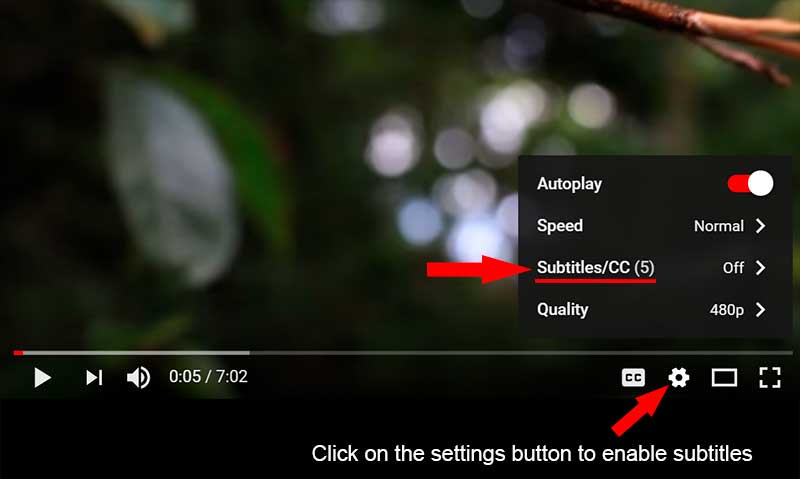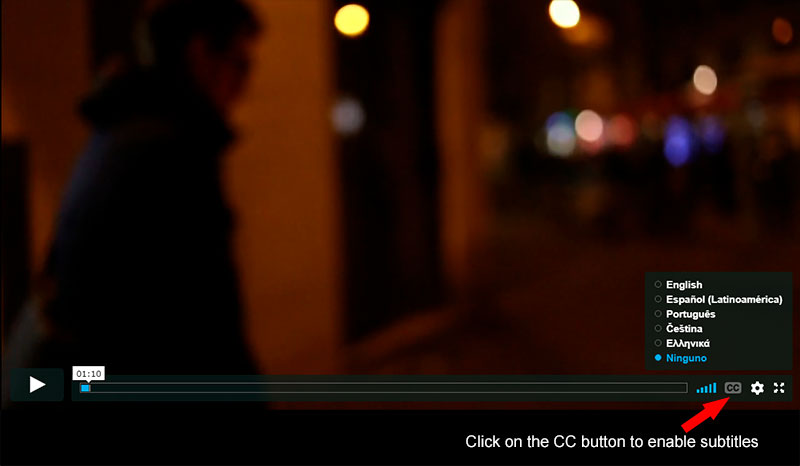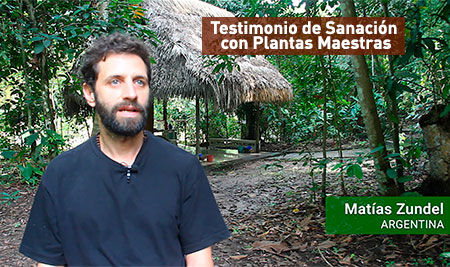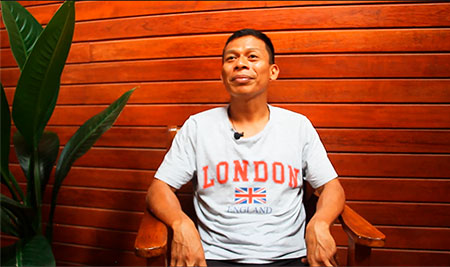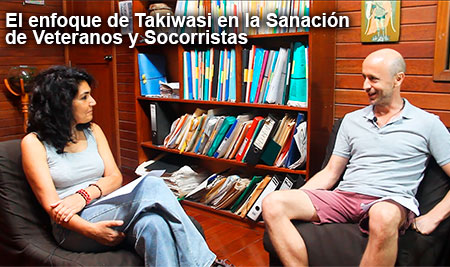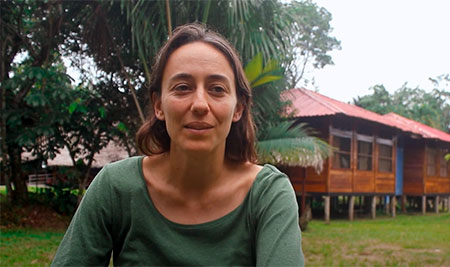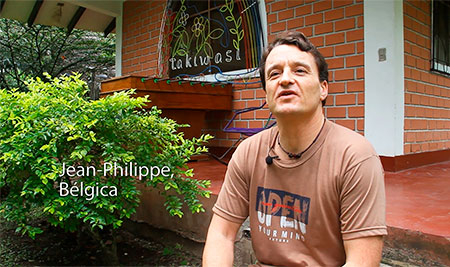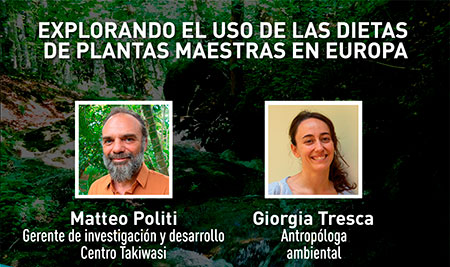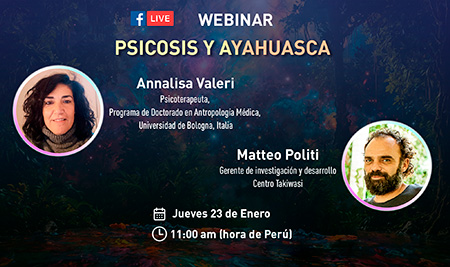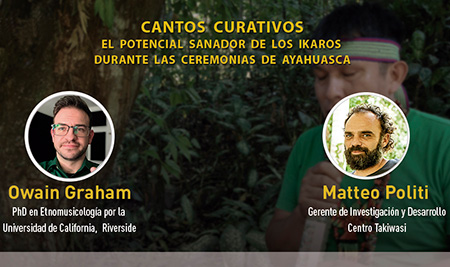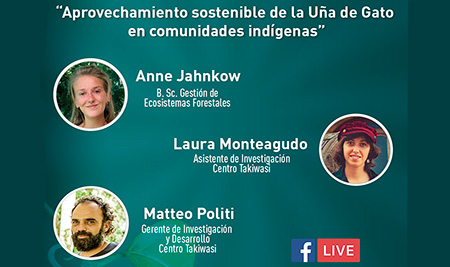Video channel
Testimonial of Deep Healing with Master Plants – Matías - April 2025
In this testimonial, Matías shares his transformative experience after completing his third retreat/diet at the Takiwasi Center. From his first master plant diet -undertaken to heal depression and certain toxic behaviors- to the clarity and balance he has achieved today, he tells us how master plants, isolation in the jungle, and therapeutic accompaniment have helped him regenerate psychologically and emotionally while also developing his spiritual side.
Author : Fabio Friso, Martín Huamán
Audio : Spanish
Subtitle : English, Français
Testimonial of addiction recovery - March 2025
Takiwasi’s innovative treatment protocol allows not only to heal drug addiction, but also to discover or reaffirm one’s vocation, as in the case of Opi Nenquimo, leader of the Waorani indigenous people of Ecuador. This testimony shows the healing power of medicinal plants, which must be accompanied by great willpower, to achieve a profound change in life.
Author : Fabio Friso
Audio : Spanish
Subtitle : -
Healing Veterans and First Responders: Diving into Takiwasi 's Integrative Approach - March 2025
In this insightful conversation, Italian psychotherapist and researcher Annalisa Valeri interviews Arnaud Montagne, a Frenchman specialized in working with veterans and first responders at the Takiwasi Center in Peru. Arnaud discusses the center's innovative project, which combines traditional Amazonian plant medicine with psychological support to address trauma, emotional suppression, and the challenges faced by veterans transitioning back to civilian life. The interview explores the importance of intention, the integration of individual and group therapy, and the transformative power of forgiveness in healing deep-seated wounds. This conversation offers a glimpse into the impactful work being done to assist veterans and first responders in reclaiming their lives and building healthier futures.
Author : Fabio Friso, Martín Huamán
Audio : Spanish
Subtitle : English
Healing PTSD with traditional Amazonian medicine: a conversation - February 2025
Many veterans have been looking for healing through psychedelic-assisted therapy. Still, most of these therapies lack of depth, as they tend to just touch the surface of the problem. The intensity of the wounds associated with PTSD demands in-depth healing, which traditional Amazonian medicine can provide when practiced in alignment with its traditions and rituals. Plant medicine can provide highly positive and transformative results, offering a unique opportunity for emotional release and self-discovery. True healing requires sustained effort, support, faith, and patience: the mental health healing journey is a long-term commitment.
Author : Fabio Friso
Audio : English
Subtitle : Español, Français
Rescuing ancestral knowledge about medicinal plants through IBE - February 2025
Since time immemorial, indigenous peoples have acquired vast knowledge about the use of medicinal plants, which we know as ancestral knowledge. However, due to the influence of the Western world, this knowledge has begun to fade. Faced with this problem, Formabiap and Takiwasi decided to join forces to recover and revitalize this knowledge. The goal is for teachers of Intercultural Bilingual Education (EIB) of indigenous peoples of the Loreto region, through research, to recover and continue transmitting their ancestral knowledge about medicinal plants, integrating it into the pedagogical processes of teaching and learning in the schools of their communities.
Author : Formabiap
Audio : Spanish
Subtitle : -
Testimonial of healing with medicinal plants - Jean-Philippe - February 2025
Jean-Philippe shares his inspiring testimonial of healing and transformation. After years of struggling with depression and addiction, he found a real path to recovery in the combination of traditional Amazonian medicine and psychotherapy. After 9 months, he returns home with a new vision of himself, ready to fully enjoy his family and his life.
Author : Fabio Friso
Audio : French
Subtitle : English, Español
Exploring the use of master plants diet in Europe - February 2025
In the context of the internationalization of Peruvian vegetalismo, today a growing number of Europeans are undergoing learning process in Peru to become healers and are making use of the “diet” in their country of origin with plants from the European flora. This presentation is based on the research of environmental anthropologist Giorgia Tresca, who has explored the way in which diets are carried out in a European context. Taking as a reference the multispecies approach, it is argued that the plants used in the diet can participate in the redefinition of the relationship of individuals with the environment.
Author : Martín Huamán
Audio : Spanish
Subtitle : -
Psychosis and Ayahuasca - January 2025
In this conversation we explore the first results of the doctoral thesis work in medical anthropology by Annalisa Valeri, psychotherapist, on the so-called psychotic experiences as narrated by Takiwasi patients who have experienced them and how they were addressed and treated by the healers and psychologists of the center. Our attention focuses mainly on the encounters between the human and the non-human, understanding by "non-human" not only plants and animals, but also beings of nature and spiritual entities. We also address the concept of the body, which differs from the biological and individual idea of Western culture, to delve deeper into the notion of different bodies present in Takiwasi and also in the cosmovision of indigenous communities. Finally, we discuss the possible clinical implications derived from the integration of alternative conceptions of the body into therapeutic practice.
Author : Martín Huamán
Audio : Spanish
Subtitle : -
The Healing Potential of Ikaros during Ayahuasca Ceremonies - December 2024
The research conducted by Owain Graham, PhD in Ethnomusicology from the University of California, Riverside, has focused on analyzing the therapeutic importance of the ikaros, recording how these chants used during Ayahuasca ceremonies provoke healing experiences by modulating the patients’ emotions and the modified state of consciousness induced by the brew. It has been possible to observe how the ikaros help patients feel safe while guiding them through difficult memories and emotions, and facilitate healing and learning experiences about their substance use problems. Something interesting that emerged during the research is that the ikaros accompany the patients as echoes also after the Ayahuasca ceremony, for example, during the retreats-diets and even after finishing the treatment, keeping the person connected to the process of taking plants.
Author : Martín Huamán
Audio : Spanish
Subtitle : -
Sustainable community forest management of Cat’s Claw - November 2024
Anne Jahnkow's research for her graduation thesis in Forest Ecosystem Management at Eberswalde University for Sustainable Development, Germany, has examined sustainable community forest management of medicinal plants, focusing specifically on wild harvesting of Cat's Claw (Uncaria tomentosa) in the Chirik Sacha native community located in the San Martin region of Peru. The research has sought to identify factors that hinder successful management of Cat's Claw, suggest improvements for sustainable harvesting and commercialization, and explore the potential of a community-managed cultivation system. The research has also explored the importance of valuing and integrating traditional knowledge about medicinal plants not only into forest management, but also into the methods of modern science.
Author : Martín Huamán
Audio : Spanish
Subtitle : -
Contact Form
×A confirmation e-mail has been sent to your account.
